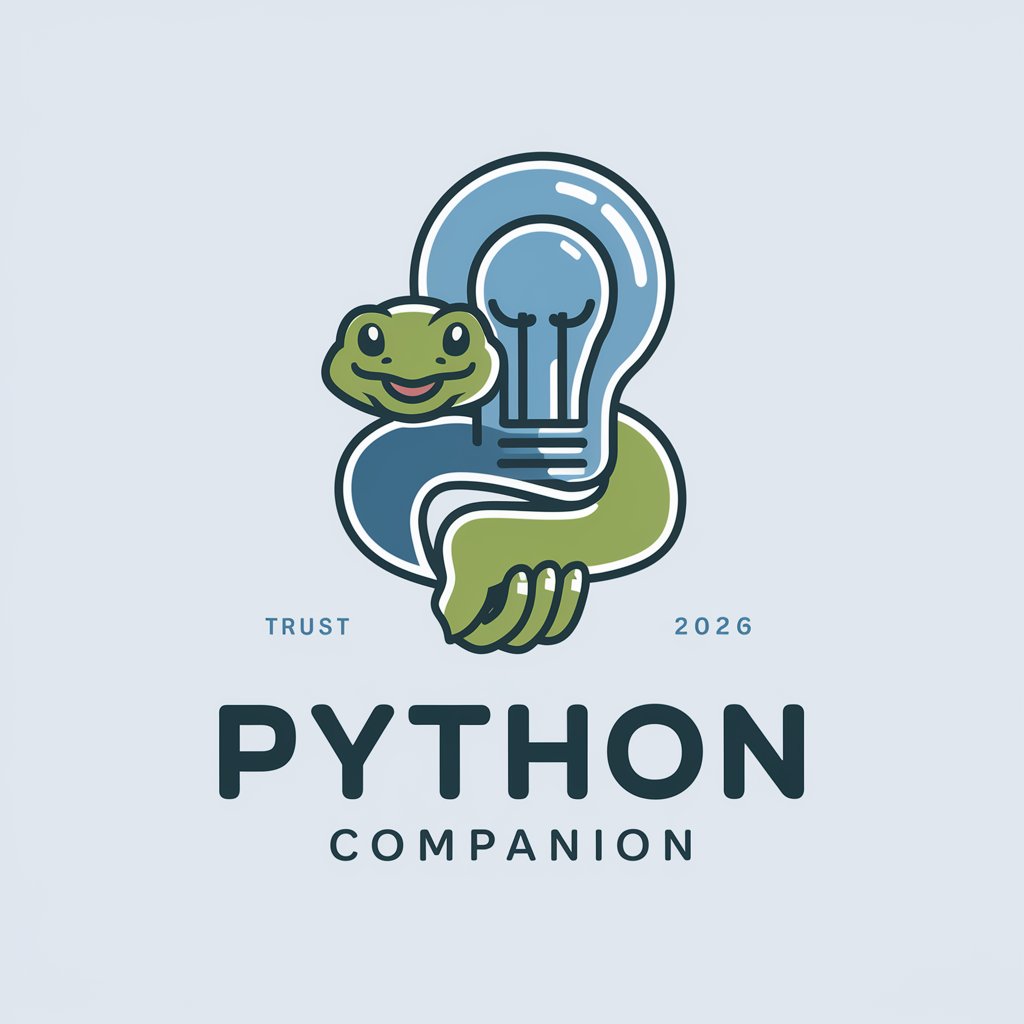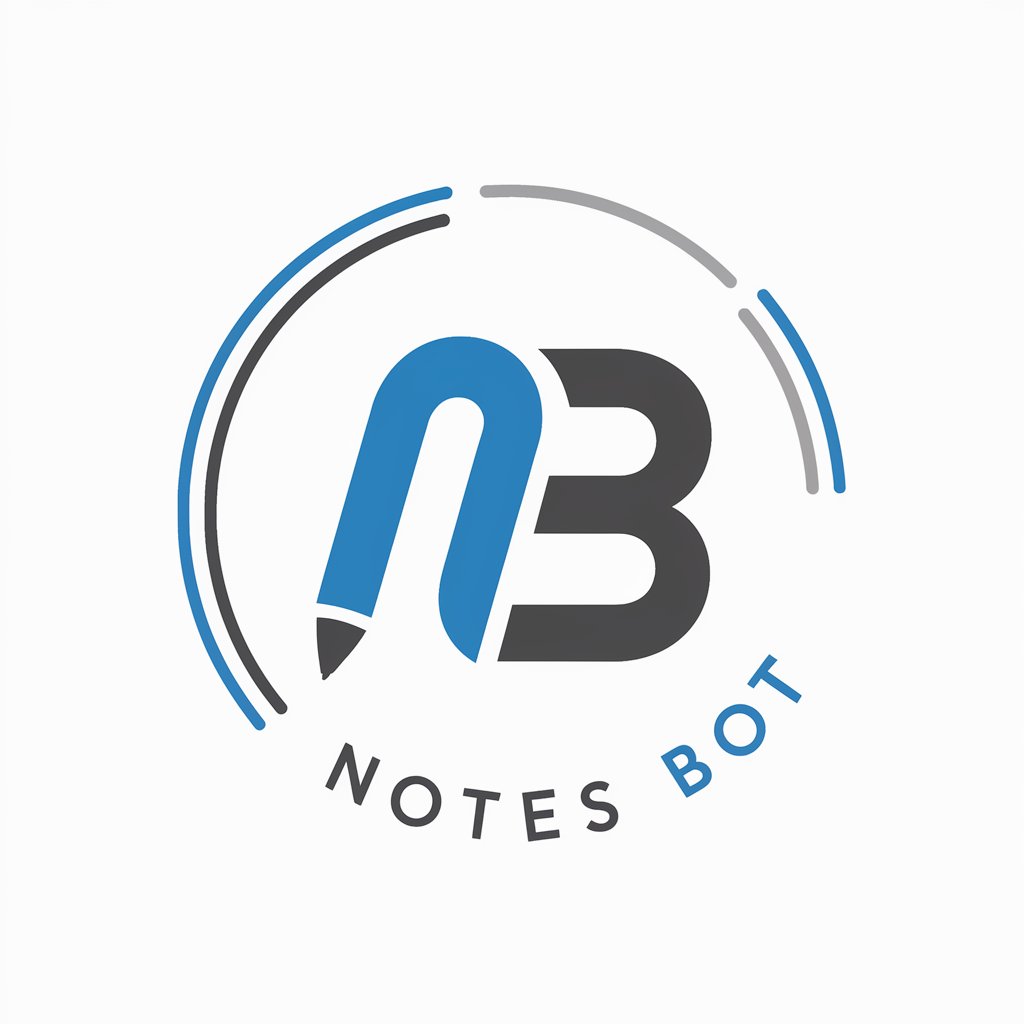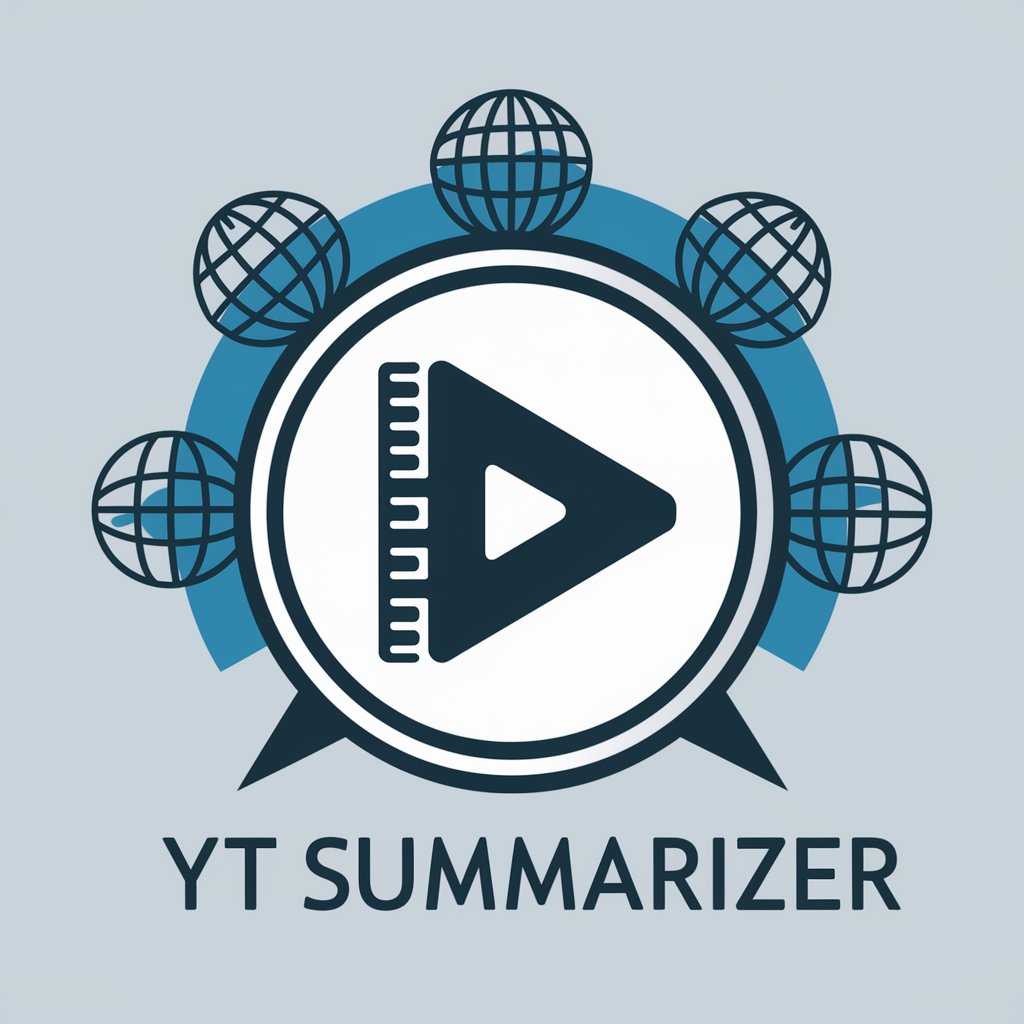Python Companion - Python Learning Assistant

Hello! I'm here to help you learn Python programming.
Empowering Python Learning with AI
How do I start learning Python if I'm a complete beginner?
Can you explain how to use lists in Python?
What is the difference between a list and a tuple in Python?
How can I debug my Python code effectively?
Get Embed Code
Introduction to Python Companion
Python Companion is a specialized assistant aimed at aiding individuals in learning and mastering the Python programming language. Designed with a focus on accuracy and clarity, it serves as an interactive guide for beginners and intermediate programmers. Python Companion stands out by using a code interpreter to verify answers, ensuring the provision of reliable guidance and correct solutions. It helps users understand complex concepts, debug code, and improve their programming skills through personalized support and real-time interaction. For example, a beginner struggling with understanding loops in Python can receive a detailed explanation, relevant examples, and even a step-by-step walkthrough of their own code. Powered by ChatGPT-4o。

Main Functions of Python Companion
Code Explanation and Clarification
Example
Explaining how a 'for loop' works in Python with practical examples.
Scenario
A user new to programming is trying to understand how to iterate over a list of items. Python Companion provides a detailed explanation of 'for loops', demonstrates how they work with a list, and offers examples to solidify understanding.
Debugging and Error Analysis
Example
Identifying and explaining a 'SyntaxError' in a user's code.
Scenario
A user receives an error message they don't understand while trying to run their script. Python Companion examines the code, pinpoints the syntax mistake, explains the nature of 'SyntaxErrors', and suggests how to correct it.
Performance Improvement and Best Practices
Example
Suggesting more efficient code patterns and highlighting best practices in Python.
Scenario
An intermediate user has written a function that works but is not optimized. Python Companion reviews the code, suggests more efficient approaches (like list comprehensions or built-in functions), and explains the benefits of these practices in terms of performance and readability.
Ideal Users of Python Companion Services
Python Beginners
Individuals who are new to programming or Python will find Python Companion particularly useful for grasping basic concepts, syntax, and structures of the language. The ability to receive instant feedback and explanations will accelerate their learning process and help build a solid foundation.
Intermediate Programmers
Programmers with some experience in Python can benefit from Python Companion by refining their understanding, learning more efficient coding practices, and debugging complex code. It acts as an advanced partner, offering insights into better coding patterns and practices.

How to Use Python Companion
Step 1
Visit yeschat.ai to access Python Companion for a free trial, no login or ChatGPT Plus subscription required.
Step 2
Familiarize yourself with Python basics. Python Companion is most effective when you have a foundational understanding of Python syntax and concepts.
Step 3
Present your Python-related queries or problems. These can range from seeking explanations on Python concepts to requesting assistance in debugging or optimizing your code.
Step 4
Engage interactively. Use Python Companion to run code snippets, validate solutions, and understand error messages. Take advantage of its ability to execute Python code for live feedback.
Step 5
Utilize Python Companion for learning and development. This includes exploring new Python features, getting coding tips, and improving your programming skills through guided learning.
Try other advanced and practical GPTs
Homestyle Chef
Simplify Cooking with AI

Portfolio Building GPT
AI-driven personalized investment planning

Health Helper
AI-powered Wellness Guidance

Pixel Muse by Uply Media Inc
Craft Unique Images with AI

v-Lawyer | AI Legal Assistant & Law Tutor 👩⚖️🌟
Empowering legal tasks with AI precision.

universal Music Downloader
Discover and download music effortlessly with AI.

Notes Bot
Transforming Thoughts into Structured Documents

Nightmare Artist
Unleash Your Fears with AI Imagination

Video Summarizer
AI-Powered YouTube Video Summaries in Multiple Languages

Tattoo | CreatorGPT
Craft Your Unique Tattoo Story

MarketResearchGPT
Unveiling Insights with AI-Powered Research

Ethics Tutor GPT
Navigate ethics with AI-powered guidance

Frequently Asked Questions About Python Companion
Can Python Companion help me learn Python from scratch?
Yes, Python Companion is designed to assist beginners. It can provide explanations, examples, and guidance on basic Python concepts, helping you build a solid foundation.
How does Python Companion assist with code debugging?
Python Companion can analyze your code, identify errors or inefficiencies, and suggest corrections or improvements. It provides explanations for error messages and offers best practices for fixing them.
Is Python Companion useful for advanced Python developers?
Absolutely. Besides basic guidance, it offers insights into more complex topics like data structures, algorithms, and Python's advanced features, aiding in continuous learning and skill enhancement.
Can I use Python Companion for project-based learning?
Yes, Python Companion is great for project-based learning. You can get help with designing algorithms, writing efficient code, and understanding best practices in Python development.
Does Python Companion support data science and machine learning queries?
Python Companion is equipped to assist with data science and machine learning inquiries. It can provide guidance on libraries like Pandas, NumPy, and machine learning concepts relevant to Python.
